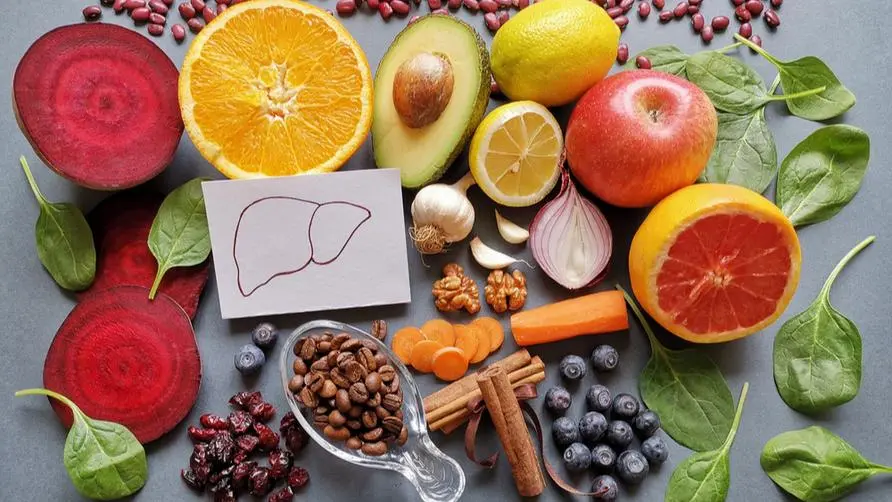Can eating Japanese food prevent "fatty liver"? Research reveals: "These three" of 12 major diets have the best effect

Taiwan’s food culture is deeply influenced by Japan. Not only are there many Japanese restaurants, but Japan’s health culture is also deeply rooted in people’s hearts. Now research has confirmed that eating more “Japanese food” is actually related to promoting actual health conditions? Literature published in the authoritative nutrition journal “Nutrients” shows that soybeans, seafood and seaweed (such as kelp, seaweed) commonly found in Japanese cuisine can help reduce the risk of “non-alcoholic fatty liver disease”.
Can eating Japanese food prevent “fatty liver”? Among 12 kinds of diet, “these three” have the best effect
The research was initiated by Osaka Public University, Japan. The research team will recruit 200 patients with non-alcoholic fatty liver disease from 2021 to 2022, and conduct research and comparison with students over 20 years old studying at Osaka Metropolitan University School of Medicine. The Japanese diet is defined in this study as containing foods such as rice, miso soup, pickles, soy products, green or yellow vegetables, fruits, seafood, mushrooms, seaweed, green tea, coffee, beef, and pork.
The research team conducted the “Japan Diet Score” (mJDI12) based on the above 12 foods. The results showed that those who consumed more soybeans, seafood and seaweed foods in the Japanese diet had the most significant inhibition on the process of liver fibrosis. The research team also tracked the impact of the Japanese diet on muscle mass and found that those who ate more soy products had greater muscle mass, presumably related to its rich protein composition.
Study author Dr. Yoshinari Matsumoto said that the common benefit of the above three healthy foods is that they have relatively low fat content. For example, soybeans are rich in plant fiber protein with low saturated fat content; seafood and fish contain Omega-3 fatty acids, Vitamin D and vitamin B2, as well as minerals such as calcium, phosphorus, iron, zinc, iodine, magnesium, and potassium. Seaweed is rich in polyphenols, vitamins and minerals.
Matsumoto Yoshinari pointed out that other foods that may help reduce the risk of fatty liver include “green tea”. A cup of green tea contains about 200-300 mg of “EGCG” (epigallocatechin-3-gallate), which is a natural antioxidant. Confirmed to help improve fatty liver disease. In addition, the natural antioxidants quinic acid and caffeic acid in coffee beans, as well as the water-insoluble fiber in berries, can help reverse or prevent fatty liver-related diseases.
Eating too much processed products is more harmful to the liver than staying up late! 8 diseases related to fatty liver
Yoshinari Matsumoto said that in addition to specific foods in the Japanese diet; overall, a dietary pattern involving 12 foods may also be beneficial in preventing fatty liver. Traditional Japanese foods are low in sugar and processed foods, which can cause liver inflammation or liver damage. By following the dietary principles of whole foods and low-processed foods, not only can it help prevent fatty liver disease, but patients with fatty liver disease may also improve liver health and slow down the progression of the disease.
Matsumoto Yoshinari pointed out that fatty liver may be related to colorectal cancer, chronic kidney disease, gastroesophageal reflux, obstructive sleep apnea, hypothyroidism, periodontitis, polycystic ovary syndrome, and hormonal and growth hormone disorders in the body. associated with high risks. “Foods rich in refined sugar, saturated fat, high sodium or trans fat can lead to fatty liver disease by increasing inflammation, insulin resistance, and oxidative stress, so these foods should be avoided in life.”
Is there still “no cure” for fatty liver? If you want to reverse the disease, take 6 quick steps
In addition to the Japanese diet being related to the prevention of fatty liver, what other measures can be taken to avoid the risk of liver explosion? According to “Harvard Health Publishing”, there are currently no specific drugs for the treatment of non-alcoholic steatohepatitis, so lifestyle changes are the most important way. Because exercise has a significant effect on reducing body fat and liver fat, a study pointed out that 20 to 60 minutes of aerobic or anaerobic exercise 3-4 days a week can reduce the risk of non-alcoholic steatohepatitis in patients. liver fat and reduce liver damage.
In terms of nutrients, vitamin E is recommended for patients with non-alcoholic steatohepatitis due to its antioxidant benefits. Omega3 fatty acids have the effect of lowering blood lipids and liver fat, and are considered to be useful in non-alcoholic fatty liver disease with high triglycerides. Recent studies have shown that Statins blood lipid drugs have the effect of lowering blood lipids and reducing liver cancer, and can be used for people with non-alcoholic fatty liver disease who have high blood lipids and high triglycerides.
Most people with non-alcoholic steatohepatitis are overweight. Weight management is one of the most effective ways to reduce fatty liver disease. Generally speaking, losing 5% of your body weight can reduce some liver fat. Losing 7-10% of your body weight can reduce the damage to liver cells caused by inflammation. On average, losing 5-10% of your body weight can improve insulin resistance and liver disease. function and effects on liver tissue. For obese people, appropriate weight loss can also reduce the risk of diabetes, high blood pressure, high cholesterol and cardiovascular disease.
Any healthy diet that helps control weight can help improve non-alcoholic steatohepatitis, and the low-calorie Mediterranean diet is one of the best choices. The main principles of the Mediterranean diet are to eat more fruits and vegetables, whole grains, beans, Nuts and olive oil. In terms of meat, it is recommended to eat less red meat and more lean meat from deep-sea fish and poultry containing fish oil. In addition, a 2020 study pointed out that eating more cruciferous vegetables (including broccoli, cauliflower, radish, Chinese cabbage, kale, purple cabbage) is associated with a reduced risk of non-alcoholic steatohepatitis.
Source:
Further reading:





